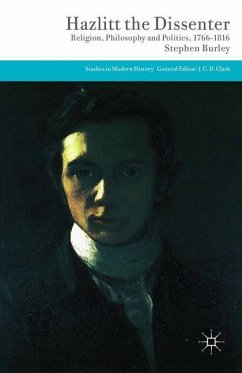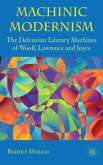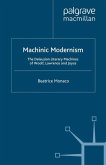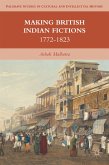Hazlitt the Dissenter is unique in providing the first book-length account of Hazlitt's early life as a dissenter. As the first multi-disciplinary account of Hazlitt's early literary career, it provides a new insight into the literary, intellectual, political and religious culture of the late eighteenth and early nineteenth century.
"While drawing on the recent rich body of writing about Hazlitt, Burley differentiates his own approach from accounts that have emphasized Hazlitt's role in the creation of English Romanticism and a recognisably modern form of criticism. ... This is an important contribution to Hazlitt studies, written with great clarity and founded on rigorous scholarship." (James Grande, The BARS Review, Issue 47, Spring, 2016)
"Stephen Burley's insightful and sensitive book covers what is perhaps the happiest, but least critically explored, part of William Hazlitt's life. ... This inspiring book is a wonderful addition to critical studies of the period and must help generate more research into Hazlitt's early works and into the history of British Dissent." (John Gardner, Notes and Queries, Vol. 63 (2), June, 2016)
"Stephen Burley's slender but impressive volume makes a valuable addition to the recent growth of academic interest in the life and work of William Hazlitt. ... Dr Burley's book will be of considerable interest to historians of this period." (G. M. Ditchfield, History Reviews, April, 2016)
"Stephen Burley's insightful and sensitive book covers what is perhaps the happiest, but least critically explored, part of William Hazlitt's life. ... This inspiring book is a wonderful addition to critical studies of the period and must help generate more research into Hazlitt's early works and into the history of British Dissent." (John Gardner, Notes and Queries, Vol. 63 (2), June, 2016)
"Stephen Burley's slender but impressive volume makes a valuable addition to the recent growth of academic interest in the life and work of William Hazlitt. ... Dr Burley's book will be of considerable interest to historians of this period." (G. M. Ditchfield, History Reviews, April, 2016)








